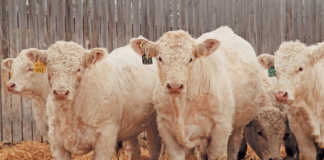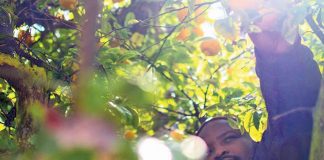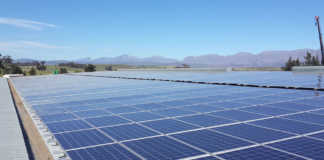
Photo: Supplied
With food security at the forefront of many discussions and interventions around South Africa and the world, regenerative agriculture may be the solution to many of the challenges being faced by prime food producers, farmers.
Described by the Regenerative Agriculture Association of Southern Africa as farming with nature rather than against nature, there is no one definition of regenerative agriculture.
What is regenerative agriculture?
According to Regenerative International, regenerative agriculture is a system of farming principles and practices that regenerate soils by restoring the carbon cycle, the water cycle and the nutrient cycle and, in the process, produce nutrient-dense foods while restoring the soil’s other crucial ecosystem services.
Regenerative agriculture is farming in a way that improves agricultural ecosystems by farming with nature rather than against it. Along with increased yields and resilience to a variable climate, regenerative agriculture strives to rebuild and restore ecosystem function.
Leading the movement
At the forefront of regenerative agriculture in South Africa is RegenZ, an independent, family-owned agriculture services business based in KwaZulu-Natal.
With over 30 years of experience in the local agriculture sector, RegenZ represents and commercialises innovative agricultural and crop production technologies in South Africa, with a focus on regenerative or environmentally beneficial solutions for commercial and smallholder farmers.
RegenZ specialises in creating markets at the commercial and smallholder level and developing attractive propositions for the introduction and success of innovative agricultural technology.
Alex Platt, head of business development at RegenZ, says: “We know that healthy soils result in healthy produce. With regenerative farming methods, this ecosystem-based approach aims to improve a farm’s resilience, yield and quality. It does so by restoring soil health, increasing biodiversity, reducing the effect of synthetic inputs, and restoring a variety of ecosystem services.
“These regenerative management actions lead to a more sustainable and resilient agricultural system. Another important benefit is the removal of atmospheric carbon dioxide and the storage of carbon in soils.”
The challenges
Several challenges, including facing the global COVID-19 pandemic, have reminded people of the importance of their health, Alex says.
“Intertwined with human health is the health of our planet, which is also currently in a crisis caused by climate change and the collapse of biodiversity. Adding to the threat, the world’s population is projected to grow from the current 7,8 billion people to 9,7 billion people over the next three decades. In South Africa, the population has been forecast to grow from 54 million people to over 65 million in 2050. Along with a growing population to feed, farmers are challenged by changing climate conditions and the overall sustainability of their operations. The agriculture sector is one of the major culprits contributing to biodiversity loss.”
According to the Regenerative Agriculture Association of South Africa, the industrialised production of food erodes soil, damages the natural environment and is responsible for 24% of greenhouse gas emissions.
Around the world, more than a quarter of the carbon emissions contributing to climate change come from growing and processing food, according to RegenZ.
Climate change and its associated droughts, floods and extreme weather are already disrupting harvests, wiping out growing seasons and creating food supply chain volatility.
In the future, South Africa is expected to experience less rainfall and higher temperatures, which will have a negative impact on water resources, soil and crops.
On top of the scourge of climate change, producers also have to grapple with natural resource degradation due to years of incorrect grazing management.
It is estimated that the average net primary productivity in South Africa decreased by an average of 29kg of carbon/ha/year in the period from 1981 to 2003, and has continued to decline since.
The only solution, says head of special projects at RegenZ, Nick Platt, is regenerative agriculture.
“Switching to regenerative agriculture methods minimises carbon emissions, promotes biodiversity, protects the soil and ensures agricultural sustainability.”
Why we need regenerative farming
According to Nick, the current systems of food production damage the environment, erode soils and increase greenhouse gas emissions.
“For the past 75 years, ploughs, chemicals and fertilisers used in the industrial agriculture sector have depleted our soils to the extent that they now produce nutrient-poor food. Depleted soils and chemical inputs impact both human health and environmental health.
“So, what can we do to fix this? Put simply, we need to return carbon to the soil instead of pumping it into the atmosphere. Regenerative agriculture is the way to do this. Basically, all agriculture and types of farming that do not build soil biology and reinstate natural mineral and water cycles can be seen as destructive. Given the dire condition of our soils in South Africa and around the world, sustainable agriculture can no longer be our goal; we can’t merely ‘sustain’, we need to ‘regenerate’.”
How regenerative farming works
Regenerative agriculture goes back to working with natural systems rather than against them, according to RegenZ.
This includes methods such as grazing animals in ways that mimic plains game on grasslands, using old methods of crop farming from before the time of chemicals, going back to the philosophy of the sun as the only source of energy, subverting monoculture and restoring carbon and water cycles.
Regenerative agriculture calls on farm management that forms carbon loops rather than a series of carbon emissions that take carbon from the soil into the sky.
As a result, these practices rebuild the soil, stimulating microbiology and fixing the water cycle. By maximising the photosynthetic potential of the soil, regenerative agriculture captures more carbon and cools the planet.
RegenZ’s role
According to Nick, RegenZ was born out of their sister company, Zylem.
“Justin started Zylem in 1992. Zylem then began handling all technical aspects of a Dutch potato breeding and production company in South Africa. From there, along with the seed potato business, the representation evolved into crop inputs as well when Justin started importing Nutri Tech Solutions’ products from Australia.
“To reduce the cost of those products for local growers, significant effort went into developing local sources for all the raw materials, which were manufactured under licence in South Africa. Zylem now manufactures its own range alongside the existing Nutri Tech Solutions range. As a result, Zylem developed two separate but complementary businesses: product manufacturing, and plant breeders’ intellectual property representation and management.”
He says the decision was taken in 2021 to separate these businesses into their own entities.
“As the entity specialising in intellectual property representation, RegenZ is now focused on aligning itself with principals around the world that hold innovative agriculture technology with potentially beneficial and commercially feasible applications in Southern Africa. RegenZ is building a portfolio of principal partners to represent their specific technology in South Africa.”
Speaking about the work done by RegenZ, Alex says one example is the Crane Friendly Potato Trial on Ivanhoe Farm in Impendle. The farm is a crane custodian for the KZN Crane Foundation.
“Running from September 2021 for a planned period of eight years, the objective of the trial is to research and develop methods for seed potato farmers to produce commercially viable, high-quality certified potato seed using regenerative agricultural principles and minimal to zero inorganic or synthetic inputs. The findings are hoped to generate insights for potato farming more broadly as well.”
He says RegenZ works with a network of consultants around the country.
“Firstly, we work with contract seed potato growers in KwaZulu-Natal to grow the various seed varieties we represent in South Africa. Secondly, we have a network of resources that we rely on to tackle any agricultural project or problem we are faced with.
“RegenZ works with farmers throughout Southern Africa thanks to Zylem’s existing distribution network. RegenZ is growing its network of consultants and partners around Southern Africa, specifically in the smallholder sector. RegenZ has signed up to the South African Food Transformation Alliance, which has been set up by IDH to build and support local food supply chains.”
Nick says: “The change we hope to bring is providing the agriculture sector with the tools, inputs and technology to farm with nature, not against it, while still achieving food security in a commercially feasible way. Healthy environment or soil, healthy food, healthy people.”
Currently, he says, RegenZ is focused on growing its smallholder farmer market footprint.
“We are working with partners and organisations to tailor Zylem’s nutrition range to suit smallholders and introduce new seed varietals and extra agricultural services like soil testing devices, supplementary organic inputs and certified seed.”
Working with global companies
Speaking about RegenZ’s achievements, Alex says the company is a family-owned and -run business that works with global companies.
“RegenZ has partnered with several plant breeders to successfully commercialise their varieties, specifically potatoes, in Southern Africa, and has partnered with Dutch biotechnology company Solynta to introduce a revolutionary technology, Hybrid True Potato Seed, to Southern Africa.”
He says RegenZ is pioneering the regenerative space along with a few other companies in South Africa.
“The market has grown due to some of the work we have done and the emphasis we have placed on the benefits of regenerative agriculture for farming, our food system and the natural environment.
“RegenZ and the team is driven to create a more regenerative, ecologically balanced and healthy food system. Healthy soil means a healthy plant, which makes a healthy human. We believe there is not just social benefit to this movement but commercial opportunities too that can grow the Southern African economy while promoting environmental health and restoration.”
Visit regenz.co.za.













